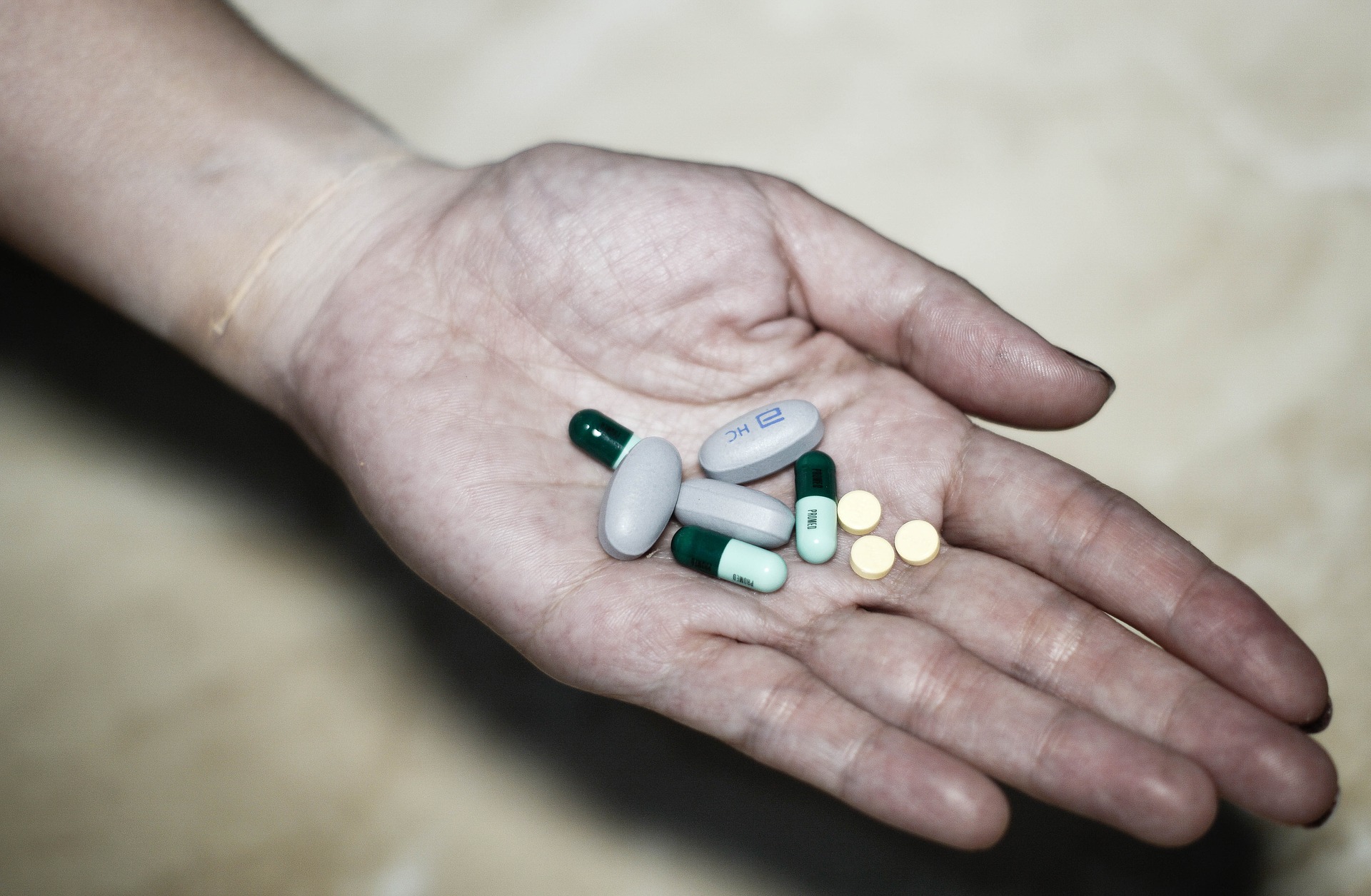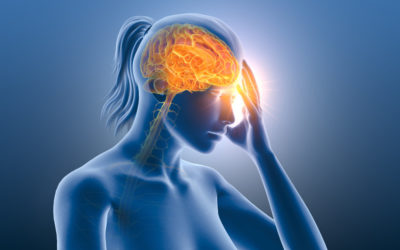When you’re overcome with heart-pounding panic, frozen by fear, or fatigued from yet another sleepless night spent stressing, you’ll do anything to find comfort. And there’s no denying that medication can aid when anxiety is disabling. But what are the best medications to treat anxiety?
Anxiety disorders are treated with a variety of medications, including traditional anti-anxiety medications like benzodiazepines (usually prescribed for short-term usage and on an as needed basis) or newer choices like SSRI antidepressants (often recommended as a long-term anxiety solution). These medications can provide brief comfort, but they can have severe side effects and safety issues.
Diagnosing Anxiety
To help diagnose generalized anxiety disorder, your doctor or mental health professional may:
- Inquire about your symptoms and medical history in detail.
- Use psychological surveys to aid in the diagnosing process.
- Use the American Psychiatric Association’s Diagnostic and Statistical Manual of Mental Disorders (DSM-5) criteria as a guide.
- Look for other causes of anxiety, like underlying medical problems or medications
Benzodiazepines For Anxiety
The most common medications to treat anxiety are benzodiazepines (sometimes known as tranquilizers). Xanax (alprazolam), Klonopin (clonazepam), Valium (diazepam), and Ativan (lorazepam) are fast-acting drugs that provide relief in 30 to 60 minutes. When used during a panic attack, or another intense anxiety episode, they can be extremely effective. They are, however, physically addicting and are not suggested for long-term use.
Benzodiazepines help you relax both physically and mentally by slowing down your nervous system. However, it might also have unfavorable side effects. These adverse effects are more powerful at higher doses—although some people report feeling tired, disoriented, and uncoordinated even at moderate doses. This can lead to issues at work, school, or in everyday tasks like driving. The effects of the drug can last throughout the next day.
Side Effects May Include:
- Drowsiness
- Dizziness
- Poor coordination or balance
- Speech slurred
- Concentration issues
- Problems with memory
- Confusion
- stomach ache
- Headache
- Vision is hazy
Selective Serotonin Reuptake Inhibitors (SSRI) Antidepressants For Anxiety
Many medications that were first licensed for the treatment of depression are now used to treat anxiety. The danger of reliance and abuse is lower with antidepressants than with benzodiazepines. Antidepressants, on the other hand, take 4 to 6 weeks to start reducing anxiety symptoms, so they can’t be taken “as needed.” They’re only useful for people who have long-term anxiety issues that need to be treated.
SSRIs like Prozac (fluoxetine), Zoloft (sertraline), Paxil (paroxetine), Lexapro (escitalopram), and Celexa (citalopram) are the most commonly prescribed antidepressants for anxiety. Generalized anxiety disorder (GAD), obsessive-compulsive disorder (OCD), panic disorder, social anxiety disorder, and post-traumatic stress disorder have all been treated with SSRIs.
SSRI Side Effects May Include:
- Fatigue
- Headaches
- Nausea
- Dry mouth
- Increased sweating
- Agitation
- Drowsiness
- Weight gain
- Diarrhea
- Insomnia
- Sexual dysfunction
- Nervousness
Despite the fact that physical dependence does not develop as quickly with antidepressants, withdrawal can still be a problem. Antidepressant withdrawal effects include acute depression and exhaustion, irritability, anxiety, flu-like symptoms, and insomnia if stopped taken too quickly.
Buspirone For Anxiety
Buspirone, often known as BuSpar, is another one of the common medications to treat anxiety that operates as a moderate tranquilizer. Buspirone takes around two weeks to start working. Compared to benzodiazepines, buspirone is less sedating, does not impair memory or coordination, and has minor withdrawal symptoms.
Buspirone is a preferable alternative for older persons and people who have a history of substance abuse because the risk of dependence is low, and there are no major drug interactions. Its effectiveness, however, is limited. It appears to benefit people with a generalized anxiety disorder (GAD) but not with other types of anxiety disorders.
Side Effects May Include:
- Nausea
- Headaches
- Dizziness
- Drowsiness
- Gaining Weight
- Stomach Ache
- Constipation
- Nervousness
- Diarrhea
- Dry Mouth
Beta Blockers For Anxiety
Beta-blockers, including medications like propranolol (Inderal) and atenolol (Tenormin), are used to treat high blood pressure and heart problems. They are, however, prescribed off-label for anxiety. They aid in the regulation of anxiety’s bodily symptoms, such as a racing heart, shaking voice, perspiration, dizziness, and shaky hands.
Beta-blockers are most effective for phobias, particularly social phobia, and performance anxiety because they do not influence the emotional manifestations of anxiety, such as worry. If you’re anticipating an anxiety-inducing circumstance (such as giving a speech), taking a beta-blocker beforehand can help you calm down.
Side Effects May Include:
- Dizziness
- Sleepiness
- Weakness
- Fatigue
- Nausea
- Headache
- Constipation
- Diarrhea
If a medication isn’t working for you, your doctor may suggest switching to another or combining medications to improve effectiveness. Keep in mind that noticing an improvement in symptoms can take many weeks after starting a drug.
Side effects are a possibility with all medications, and some are not suggested in specific situations, such as pregnancy. Discuss any potential risks and side effects with your doctor.
Discounts On Medication To Treat Anxiety
If you’ve been diagnosed with anxiety and are experiencing high prescription drug costs, download your Easy Drug Card discount drug card before your next trip to the pharmacy! The Easy Drug Card, which is accepted at over 65,000 pharmacies nationwide, can help you save up to 80% on medications. Simply save the card to your phone or print it out right from your home!
Resources:
“Panic attacks and panic disorder” Mayo Clinic. 2 August 2021, https://www.mayoclinic.org/diseases-conditions/panic-attacks/diagnosis-treatment/drc-20376027
“Generalized anxiety disorder” Mayo Clinic. 2 August 2021, https://www.mayoclinic.org/diseases-conditions/generalized-anxiety-disorder/diagnosis-treatment/drc-20361045
“Benzodiazepines (and the alternatives)” Harvard Health Publishing, 2 August 2021, https://www.health.harvard.edu/mind-and-mood/benzodiazepines_and_the_alternatives












